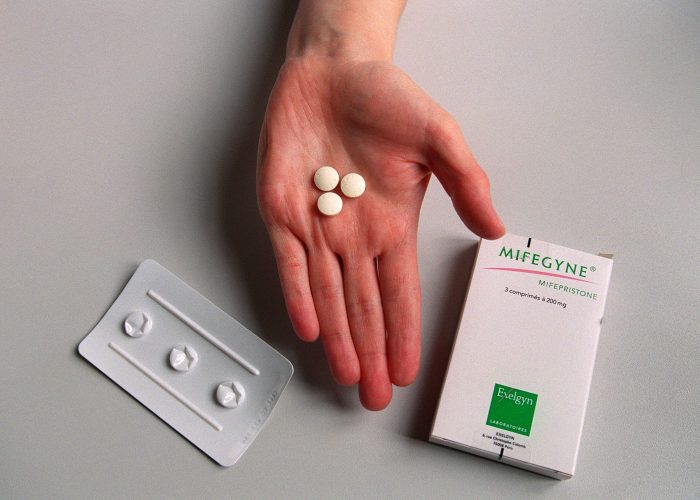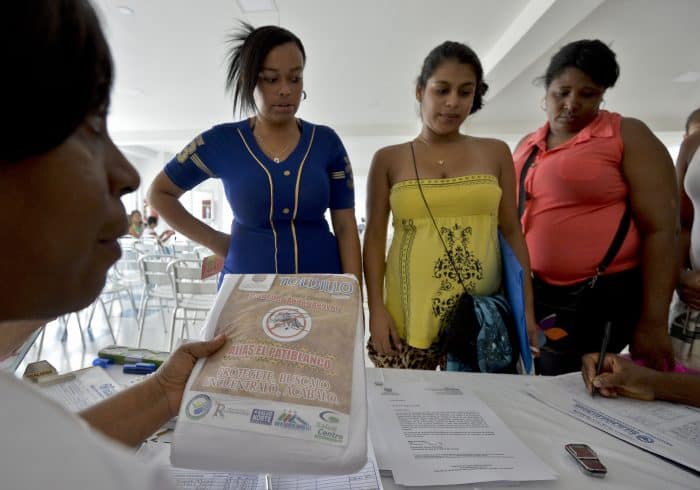The emails arrive at an accelerating pace. Once sporadic, they now come in an incessant stream of 40, 45 or 50 per day.
Most are in Spanish or Portuguese. Others are in broken English.
All of them express the same sentiment, the same fear, the same desperate plea.
“Help!” one email begins. “Zika in Venezuela. I need abortion!”
The emails are from mothers in Latin America who are scared of giving birth to children with microcephaly, the mysterious condition marked by an undersized head and brain damage that some doctors believe may be linked to the mosquito-born Zika virus.
Some of the women say they have already tested positive for the virus. Others say they only fear they have contracted the disease and that their child will be born disabled.
All of them are asking for something that is simple yet elusive — and generally illegal — in this part of the world: abortion pills.
In more than a thousand emails to Women on Web, a Canada-based group that provides advice and medication for women wanting an abortion in countries where it is banned, the women beg for the pills that are banned by law in their respective countries of Brazil, Colombia, Venezuela, Peru or El Salvador.
Laws against abortion vary by country in Latin America. Some, like El Salvador, outlaw abortion in all cases, including rape and incest. Others, such as Colombia, allow for abortions when a fetus displays signs of a severe deformity — a narrow exception that abortion rights advocates argue should apply to microcephaly.
Across the region, Zika has thrown predominantly Catholic, socially conservative countries into a sudden and fierce debate over abortion. In some countries, arguments are raging at the highest levels of the judicial system. The mysterious disease could end up dramatically altering women’s rights in the Western Hemisphere.
See: Commenting on Zika virus, Pope Francis calls abortion ‘a human evil’
In the meantime, however, women are writing to Women on Web, asking for pills.
The organization was founded in 2005 by Dr. Rebecca Gomperts, a Dutch physician. Although Women on Web has been sending packages of Mifepristone and Misoprostol to women around the world for more than a decade, Gomperts said the group had seen a sharp uptick in emails from women in Brazil since the onset of the Zika crisis.
In an interview with The Washington Post, Gomperts said the number of Brazilian women contacting Women on Web had nearly tripled, climbing from 100 during the first week of December (before the Zika outbreak became public) to 285 during the first week of February.
“When Zika hit the news we saw an [immediate] increase in the number of requests from countries that are affected by Zika,” she said. “We think that is related to the Zika outbreak. We cannot explain it any other way.
“Probably a lot of women are looking for abortion services now. Women that are pregnant and suspect that they have had Zika and they just don’t want to take the risks of having a microcephalic baby,” she said. “Our worry is that these women will turn to unsafe abortion methods, while we can help them with a safe, medical abortion.”

Gomperts said her organization is currently working with two universities to analyze its data to determine exactly how much of this increase in demand for abortion pills is due to Zika.
She provided The Post with several dozen emails from women who contacted Women on Web during the first week of February. Although Gomperts stressed that considering an abortion for any reason, especially in a country that doesn’t allow it, is always a terrifying decision for a women, she said that Zika had made the decision even more agonizing.
The emails reflect that agony.
“I am [name redacted],” begins one email. “I contacted Zika 4 days ago. I just found out I’m about 6 weeks pregnant. Today. Today, I found out I’m pregnant. I have a son I love dearly. I love children. But I dont believe it is a wise decision to keep a baby who will suffer. I need an abortion. I don’t know who to turn to. Please help me ASAP.”
Many of the pregnant women said they had tested positive for Zika but were unable to travel or obtain pills to get an abortion.
“I contracted Zika and cannot leave the country!” wrote one woman who asked to be sent abortion pills. Another woman said she was able to get Misoprostol on the black market but was unsure how to take the abortifacient.
Others said they were uncertain if they had contracted the virus. Some said they hadn’t been tested, while a few said they simply didn’t trust their doctor’s diagnosis.
“How do I know if I am infected?” wrote one woman who said she had come down with a flu five months earlier. “Can you please let me know what should I do? What kind of exam do I need to tell the doctor they should do to me?”
Many of the emails came from Venezuela, where the outbreak is feared to be much worse than publicly acknowledged. One woman said she had shown symptoms of Zika — rash, fever and diarrhea — three weeks into her pregnancy. By the time she saw a doctor, however, the symptoms were gone and the doctor said it wasn’t Zika. But the woman didn’t trust her doctor and remained fearful for her baby.
“In my mind, I can’t forget about the symptoms and the consequences that they might cause,” she wrote in Spanish. “What can I do?”
See: The hidden environmental factors behind the spread of Zika and other devastating diseases
A pregnant woman in neighboring Colombia expressed anger towards government officials, blaming them for contracting the virus.
“I dare to write you because I’m a resident in Colombia and here the Zika virus is a major problem, although the health authorities haven’t recognized it,” she wrote. “I want to ask for help because I’m overcome by fear that my baby will be born sick. I already have two girls and work long and hard as a single mother to provide for them. Life in Bogotá is difficult enough without being in charge of a sick child, especially with the health system so precarious in Colombia.”

Other women said they felt the Zika virus closing in on them like a mosquito in a closed room, and thought it was only a matter of time until they — and their unborn children — were affected by the virus.
“I’m scared of Zika because there are so many cases in my country already,” wrote one Colombian woman, six weeks pregnant. Another said someone in her town had contracted the virus, making her nervous she was next.
As moving as the emails are, Gomperts said they reflect only the tip of the outbreak iceberg. In Brazil, Venezuela and Colombia, only about 60 percent of households have Internet access. In El Salvador, it’s even less. That means that the poorest women are unable to ask for pills. The poor meanwhile, also tend to live in areas without air conditioning and with more standing water — where the mosquitoes that carry the virus breed — putting them at greater risk of contracting Zika in the first place.
“It is the poorest women who are suffering from this crisis,” Gomperts said. “It is not women in the upper class neighborhoods, who can protect themselves from mosquito bites. And that is the most frustrating part. We know that a lot of these women don’t have access to the Internet. So the women that we read, are only a few of the ones really affected by this crisis.”
To make matters worse, Brazilian customs officials have been blocking Women on Web’s pills from reaching their intended destination for several years. Gomperts said she is still waiting to see if Zika changes their minds.
“We hope the people working in the customs have some empathy and humanity in them and that in the wake of Zika they might just decide to suspend the confiscation of the medicines so that women can at least have safe abortions in the wake of this public health crisis,” she said.
Although Gomperts said what her organization does is completely legal, Women on Web isn’t allowed to advertise in countries like Brazil. Instead, women find the organization’s website via Google or hear about it by word of mouth.
Even if the pills do arrive, the women may still be at some risk. In 2008, a woman who obtained abortion pills in the mail was charged with attempted murder, although she was ultimately acquitted.
Gomperts said her organization’s efforts were hampered by both governmental bumbling and Zika itself. So many questions remain about the virus — When during a pregnancy can it be transmitted to a fetus? What happens if a mother is asymptomatic? — that Women on Web has a hard time doling out advice.
“When a woman writes to us and says that she wants her pregnancy but says she has also had Zika and is afraid, we have to tell her there are so many unknowns, we don’t know what the risk is yet,” Gomperts said.
What is clear, however, is that many governments in the region have bungled their response and put the burden almost entirely on women, she said.
“The military is going into the favelas to spray to get the mosquitoes under control,” she said of Brazil. “That’s a response, but I don’t know if that’s the appropriate response to what is happening.”
Instead, Gomperts and other abortion rights activists are calling on countries in Latin America to loosen their abortion restrictions, if not permanently then at least temporarily.
“I haven’t seen anything from the governments of these countries themselves that indicate they are reconsidering the restrictive laws because of this crisis. I haven’t seen any of that,” she said. “The only calls that have gone out from health ministers is ‘Don’t get pregnant,’ which is kind of an unrealistic demand I think, if contraception is not available for the poorest. …
“Of course men are responsible for having sex and getting women pregnant as well, but the reality is that men refuse to take this responsibility seriously,” Gomperts said. “So women are the ones who get pregnant and they are the ones who are called upon to prevent getting pregnant.”
© 2016, The Washington Post






